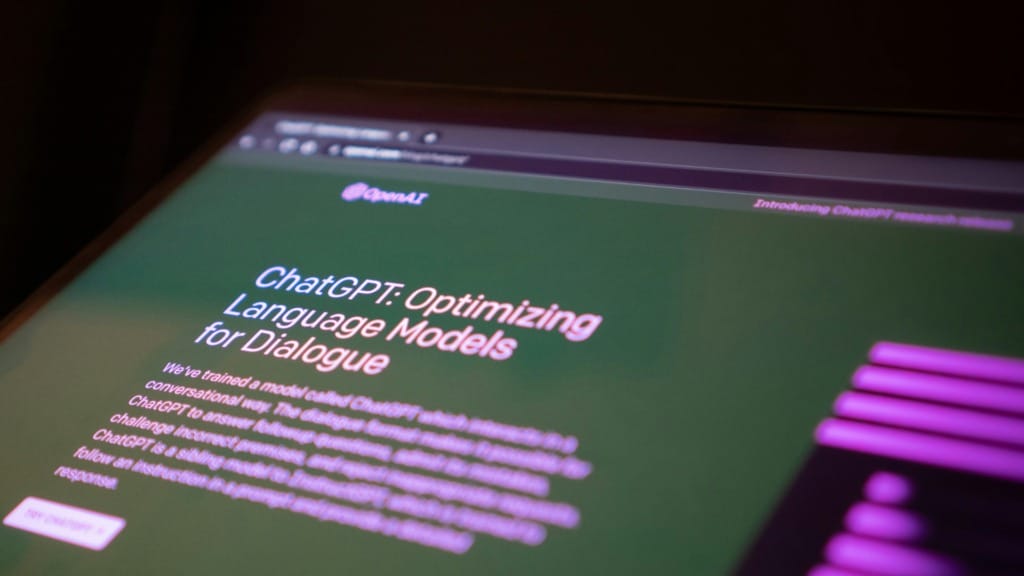How are AI agents reshaping business and workforces?
AI agents are transforming industries by automating tasks, improving efficiency, and reshaping the workforce. Discover their impact and future potential.

Artificial intelligence has evolved beyond simple automation. AI agents—autonomous systems capable of performing tasks with minimal human intervention—are becoming essential to modern business operations. Unlike traditional AI-powered assistants that merely provide insights or support decision-making, AI agents can execute complex workflows, dynamically adapt to changes, and make independent decisions within set parameters. This advancement is redefining business efficiency, cost structures, and the role of human employees.
Table Of Content
Businesses across various industries are increasingly adopting AI agents to streamline operations, reduce labour costs, and improve accuracy. These agents respond to customer inquiries, analyse vast datasets, and manage operational workflows. Companies are drawn to their ability to work 24/7 without fatigue, delivering consistent and rapid responses that would be impossible for human teams to match at scale.
However, the transition to AI-driven processes is not without challenges. While AI agents significantly reduce costs and enhance productivity, poor implementation can lead to decision-making biases, security risks, and customer dissatisfaction. Companies must ensure that AI is not simply a replacement for human labour but a tool that augments human expertise and allows employees to focus on higher-value tasks.
As AI agents evolve, businesses must carefully consider their long-term integration strategy. The key to successful adoption lies in human-AI collaboration, where AI handles repetitive and data-heavy tasks while humans provide oversight, creativity, and ethical judgment. Striking this balance will be crucial as AI technology continues to advance.
How AI agents are revolutionising industries
AI agents are driving significant changes across multiple industries, automating processes that once required human intervention. Their impact is particularly evident in healthcare, finance, logistics, and recruitment, where efficiency, accuracy, and scalability are essential.
AI agents are revolutionising diagnostics in healthcare by analysing medical imaging, patient records, and genetic data with unparalleled speed. These tools assist doctors in early disease detection and personalised treatment planning. However, AI cannot yet replace human judgment in complex medical cases where emotional intelligence and ethical considerations play a crucial role.
Finance is another sector experiencing rapid AI integration. AI-powered trading agents can execute transactions in milliseconds based on market data, significantly reducing human error. Fraud detection systems now rely on AI to analyse vast real-time transaction patterns, identifying suspicious activity far more efficiently than human analysts. However, over-reliance on AI-driven trading has led to market volatility, as seen in past algorithmic trading crashes.
In logistics and supply chain management, AI agents forecast demand, manage inventory, and optimise delivery routes. Amazon, for example, leverages AI to improve warehouse efficiency, reducing errors and delivery times. However, excessive automation in these industries risks removing human flexibility, which is often necessary when unpredictable disruptions occur.

Recruitment and human resources also benefit from AI automation. Companies like OptimHire use AI-driven agents to screen candidates, schedule interviews, and match applicants to job openings, reducing hiring timelines from months to weeks. While these systems improve efficiency, concerns remain about bias in AI-driven hiring if the training data reflects historical discrimination.
As AI agents take on more responsibilities across industries, the challenge lies in ensuring they enhance rather than replace human-driven processes. Businesses must develop hybrid AI-human workflows to leverage AI’s strengths while maintaining adaptability and ethical oversight.
The challenges of AI adoption and workforce transformation
Despite their advantages, AI agents present several challenges that businesses must address before widespread adoption can succeed. These challenges include job displacement, security risks, explainability, and regulatory concerns.
One of the most immediate concerns is workforce disruption. As AI agents replace repetitive tasks, roles in customer service, logistics, and even white-collar industries are being impacted. Companies must prioritise reskilling efforts to help workers transition into new roles where human creativity, emotional intelligence, and problem-solving remain essential. Forward-thinking organisations are already investing in training programs to equip employees with AI-related skills, ensuring they can work alongside automation rather than be replaced by it.
Another major issue is the “black box” problem—AI agents often operate through complex algorithms that lack transparency. Many businesses struggle to understand how AI systems make their decisions, which is problematic in industries like finance and healthcare, where explainability and accountability are critical. Companies must ensure that AI models are interpretable and that human experts can intervene when necessary.
Security vulnerabilities also pose significant risks. AI agents rely on vast amounts of data, making them prime targets for cyberattacks. Malicious actors could manipulate AI models, leading to biased or misleading outcomes. To counteract this, businesses must implement robust cybersecurity measures and regularly audit AI-driven decisions to ensure accuracy and fairness.

Finally, regulatory and compliance challenges complicate AI deployment. Governments and regulatory bodies increasingly scrutinise AI’s role in business decision-making, particularly concerning data privacy and bias. Businesses must stay ahead of evolving AI regulations to ensure compliance and avoid legal repercussions.
To address these challenges, companies must adopt a responsible AI strategy prioritising workforce adaptation, transparency, security, and ethical AI governance. Those who successfully navigate these hurdles will gain a competitive edge while ensuring AI benefits employees and customers.
The ethical responsibility of AI in business and society
As AI agents become more autonomous, ethical considerations become a pressing concern. Businesses must ensure that AI-driven decision-making aligns with fairness, transparency, and accountability, preventing unintended harm to customers and employees.
One of the biggest ethical dilemmas is bias in AI decision-making. AI agents learn from historical data, meaning they can inadvertently perpetuate discrimination in hiring, lending, and legal processes. For instance, AI-powered hiring platforms have been found to favour certain demographics over others, reinforcing existing biases rather than eliminating them. To counter this, businesses must rigorously audit AI training data and refine models to ensure fair decision-making.
Accountability is another critical issue. When an AI system makes a faulty decision—such as unfairly denying a loan or misdiagnosing a patient—who is responsible? Businesses must establish clear accountability structures to ensure that AI remains a tool for decision-making rather than an unchecked authority.
Privacy concerns also loom large. AI agents process massive amounts of personal and business data, raising data protection and security risks. Companies must be transparent about data collection practices and ensure compliance with regulations like GDPR and emerging AI laws.
The solution to these ethical dilemmas lies in AI governance frameworks. Companies must integrate human oversight into AI processes, ensuring that AI-driven decisions are transparent, accountable, and aligned with societal values. Responsible AI adoption is key to maintaining public trust and avoiding regulatory backlash.
What’s next for AI agents in the business world?
As AI technology continues to evolve, its future in business goes beyond automation. AI agents are beginning to play a role in strategic decision-making, creative industries, and policymaking, opening new opportunities while raising fresh challenges.

Recent developments highlight this rapid progress. OpenAI’s launch of the Responses API and Agents SDK in March 2025 is designed to enable AI agents to handle increasingly complex workflows. Meanwhile, ServiceNow’s US$2.85 billion acquisition of Moveworks underscores the growing demand for AI-driven enterprise automation. In China, the launch of the Manus AI agent signals an intensifying global competition in AI capabilities.
Looking ahead, businesses must prepare for emerging AI regulations, which will shape how AI agents are used. Governments worldwide are working to establish guidelines on AI ethics, accountability, and decision-making, ensuring AI’s integration into society remains balanced and fair.
The companies that embrace AI as a collaborative tool rather than a replacement will lead the next phase of digital transformation. By fostering responsible AI adoption, workforce adaptability, and regulatory alignment, businesses can ensure that AI agents enhance productivity while maintaining ethical integrity in the future of work.













